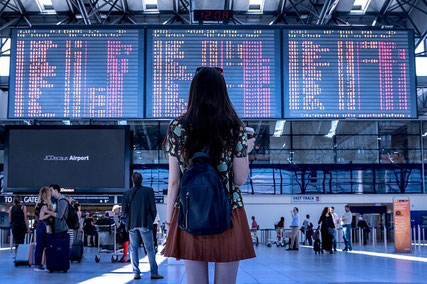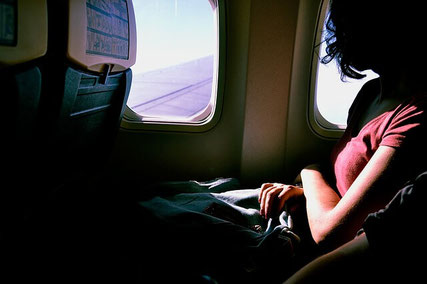
Afraid of flying? My column in last week's Southern Star offered some CBT tips on fear of flying.
Summer’s here and many people are looking forward to holidaying abroad in the coming months. If you have a fear of flying, however, then holiday plans are likely to trigger feelings of dread and anxiety.
Around one in four people are nervous about flying. Some people experience mild anxiety; others experience absolute terror. The reasons can vary. Some focus on flight safety, fearing the plane will crash due to mechanical failure or a terrorist incident or some such variation. People with panic disorder fear their own anxious feelings and worry they will get a panic attack on the plane. Socially anxious people are less afraid of their anxious feelings, but they worry others will notice their anxiety and judge them badly, driving feelings of embarrassment and shame. Others will talk of feeling trapped, of the lack of control they feel, of the discomfort brought on by turbulence, or of various other flight features that make them uncomfortable.
Instead of focusing solely on your fears, try to get in touch with your values and aspirations. Have you turned down opportunities because of your fear of flying? Do you put off thinking about holidays due to your fears? Can you imagine how much better things would be if you did the opposite – that is, if you savoured the thought of holidays and spent pleasurable time planning your trip and adventures?
What about safety? There were two well-publicised plane crashes over the last six months, but that doesn’t change the fact that flying is the safest form of transport. The odds of dying in a plane crash are about one in 11 million, compared to odds of one in 5,000 for dying in a car crash. In fact, there’s a much better chance of being struck by lightning or of drowning in the bathtub than there is of dying in a place crash.
EMOTIONAL REASONING
Some people are not comforted by the stats and will say flying “feels” unsafe or they have a “feeling” that something bad will happen; they’re scared, so they’re not getting on the plane. Cognitive behavioural therapy (CBT) researchers call this emotional reasoning – thinking something is true because it feels true. Ask yourself: will the plane really crash just because I “feel” it will, or will that be decided by the physics of flying? Can I control the flight with my mind? If flying is dangerous, then why is the plane full of excited travellers? Remember, you can feel scared and the plane will still fly. Feelings aren’t facts. Something might seem scary, but that doesn’t mean it’s dangerous.
Similarly, the physiological discomfort you feel while flying – butterflies in your stomach, sweating, racing heart – are merely harmless symptoms of anxiety. You will feel unsafe at such moments, but that doesn’t mean you are unsafe. You might think you’re going crazy or getting a heart attack; you’re not. Stay calm. Label these feelings ‘anxiety’, accept them and allow them to pass, as they always do.
SAFETY BEHAVIOURS

Whatever you do, try to resist the appeal of safety behaviours designed to minimise your anxiety. On a flight last year, I overheard two passengers discussing how a friend coped with her fear by drinking six double-whiskeys before a flight. That’s extreme, but other seemingly harmless safety behaviours – a drink to “calm the nerves”, sleeping pills, gripping your seat or rosary beads, feverishly praying or reciting mantras – are also a bad idea. Ask yourself: can you imagine carrying out these safety behaviours every time you crossed the road? You wouldn’t, because you know there’s no reason to fear crossing the road. All forms of excessive anxiety involve two key elements – overestimation of threat and underestimation of coping resources. The problem with in-flight safety behaviours is they give your brain the message that the situation is dangerous and that you cannot fully cope, thus reinforcing and perpetuating the original anxiety.
The key to taming anxiety is to accept it rather than run from it, to tolerate discomfort and to remember anxiety recedes if you stand up to it. The pleasure of being able to fly anywhere in the world is a significant one; don’t let anxiety take that away from you.